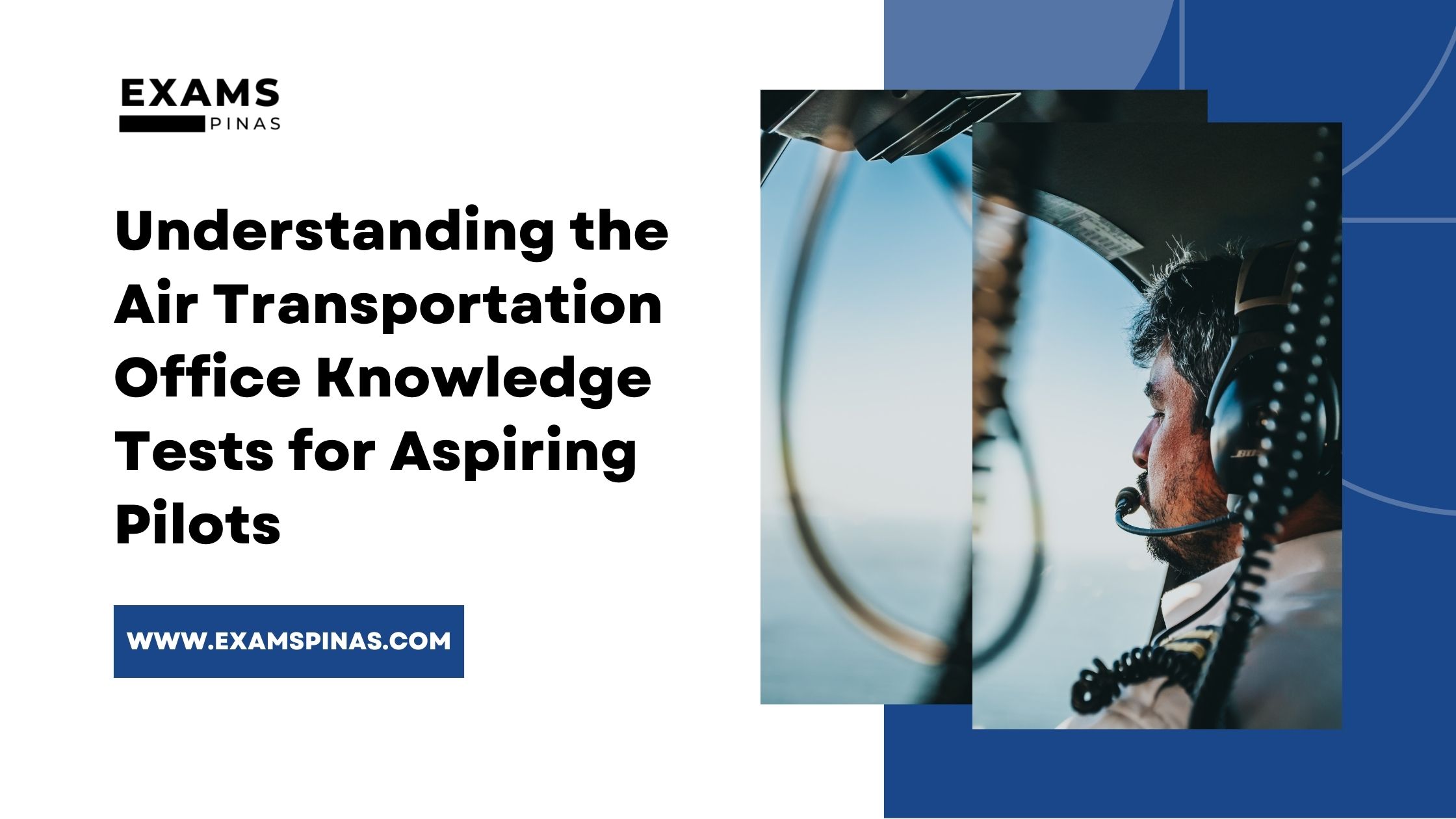Becoming a pilot in the Philippines is an exciting journey that requires dedication, skill, and a thorough understanding of the Air Transportation Office (ATO) Knowledge Tests. These tests play a crucial role in assessing the knowledge and competence of aspiring pilots, paving the way for a rewarding aviation career.
Introduction to ATO Knowledge Tests
The Air Transportation Office administers Knowledge Tests as part of the pilot certification process. These tests are designed to evaluate a candidate’s understanding of various aviation-related subjects, ensuring they possess the necessary knowledge to operate an aircraft safely and responsibly.
Components of ATO Knowledge Tests
1. Aviation Regulations and Procedures
Aspiring pilots must have a comprehensive grasp of aviation regulations and procedures. This includes knowledge of air traffic control, airspace restrictions, and adherence to safety protocols. Questions in this section assess a candidate’s ability to navigate the regulatory landscape governing aviation in the Philippines.
2. Aircraft Systems and Operations
Understanding the intricacies of aircraft systems is fundamental for aspiring pilots. Knowledge of how different components function, emergency procedures, and operational protocols are essential aspects evaluated in this section. A thorough understanding of aircraft operations ensures pilots can respond effectively in various flight scenarios.
3. Navigation and Airports
Pilots must be adept at navigation and airport procedures. Questions in this segment assess a candidate’s ability to interpret navigational charts, understand radio communication, and navigate through different airspace. Proficiency in these areas is critical for ensuring safe and efficient flights.
4. Meteorology
Weather plays a pivotal role in aviation safety. Aspiring pilots need to demonstrate knowledge of meteorological concepts, including reading weather charts, understanding weather phenomena, and making informed decisions based on current and forecasted conditions.
5. Aerodynamics and Flight Mechanics
A solid understanding of aerodynamics and flight mechanics is essential for safe piloting. Questions in this section assess a candidate’s knowledge of how aircraft generate lift, the principles of flight, and the factors influencing an aircraft’s performance.
Preparation for ATO Knowledge Tests
Success in ATO Knowledge Tests requires diligent preparation. Aspiring pilots can utilize a variety of resources, including study guides, practice exams, and educational materials provided by reputable aviation schools. Engaging in comprehensive study sessions and seeking guidance from experienced instructors can significantly enhance the chances of success.
Importance of ATO Knowledge Tests
The ATO Knowledge Tests are a foundational step in the pilot certification process. Achieving a high level of proficiency in these tests not only ensures compliance with regulatory requirements but also instills confidence in the aspiring pilot’s ability to operate an aircraft safely.
Understanding the Air Transportation Office Knowledge Tests is pivotal for individuals embarking on the journey to become a pilot in the Philippines. Aspiring pilots should approach these tests with dedication, recognizing their significance in acquiring the knowledge and skills necessary for a successful aviation career. Examspinas.com stands as your comprehensive online guide, providing valuable insights and resources to support aspiring pilots in their examination journey.

